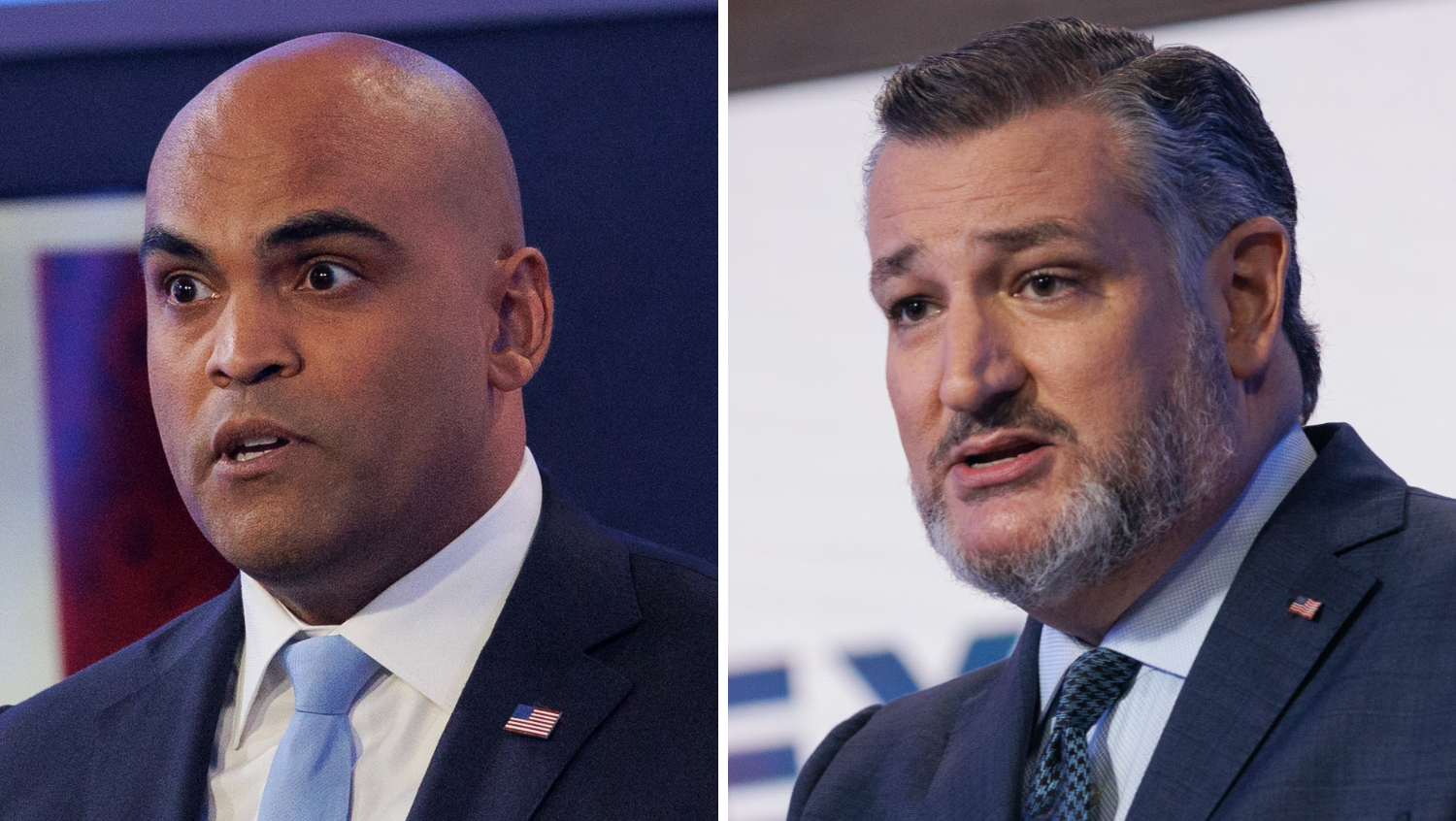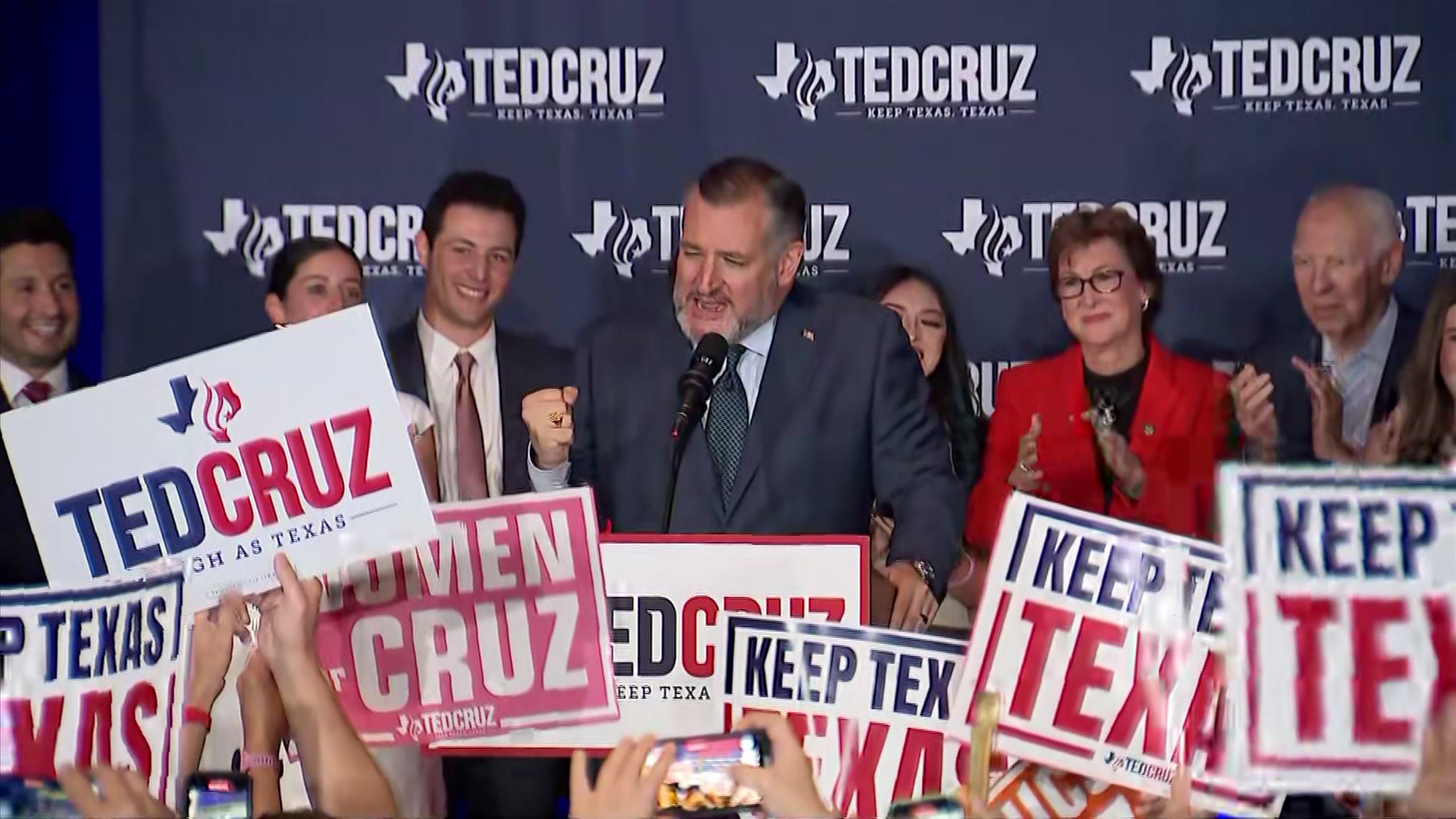Several school districts across North Texas have propositions on the ballot to bring in more money for school budgets. NBC 5’s Wayne Carter breaks down some of the issues districts are facing.
ELECTION RESULTS
- Live election night coverage in our live blog.
- Federal and state races: All races | All federal races | President by county | U.S. Senate | U.S. Senate by county | U.S. House | All state races | RR Commissioner | Texas Senate | Texas House | State Board of Ed. | Texas Supreme Court
- All races by county: Collin | Dallas | Denton | Tarrant
- Commissioners Court races: Collin | Dallas | Denton | Tarrant
- Sheriff races: Dallas | Denton | Tarrant
- School propositions: Allen | Frisco | Everyone else (Argyle, Birdville, Celina, Coppell, GCISD, Highland Park, Northwest and Sunnyvale)
- Municipal propositions: Balch Springs | Dallas | McKinney | Everyone else (Burleson, Hutchins, Irving, Johnson County, Josephine, Mansfield, Ovilla, Shady Shores, University Hills MUD, Weston)
- How many people voted early? More than 1 million people voted early in North Texas. Click here to see daily early voting totals from Collin, Dallas, Denton and Tarrant counties and compare them to those from previous years.
Nationwide election updates: Follow the latest national election news here.
It's no secret there are changes happening in Coppell ISD related to money.
Parents couldn't stop the school board from shutting down Pinkerton Elementary. Even the school board cried as they did it. Coppell and schools around Texas say Governor Abbott and lawmakers in Austin refused to give schools more money for the past five years and they can't count on them to step up.
"We have gotten through by the skin of our teeth, and we're in a situation now where we can't rely on that," said Coppell ISD Superintendent Brad Hunt.
Get top local stories in DFW delivered to you every morning. Sign up for NBC DFW's News Headlines newsletter.
Coppell ISD has been one of the most aggressive savers, even cracking down on students who miss school for any reason other than being sick. A kid taking the day off is a kid not bringing cash to the district.
This Election Day, they're at it again—a VATRE --- Voter-Approved Tax Rate Election. Coppell, like Argyle, Frisco, Grapevine-Colleyville, Celina, and Northwest ISD, wants voters to approve a higher tax rate to help them pay their bills. The VATREs differ from district to district.
"Every student, every campus will be affected by this two-part proposal," said Mike Waldrip to parents in a district-produced video.
Frisco wants bond money and a VATRE. In Grapevine-Colleyville they're asking voters to pay more for salaries and expenses, but pay less for maintenance so their taxes won't really go up.
"We're trying to make sure that we're pulling all of our levers before we do anything more," said Hunt.
Anything more? Yes, school districts aren't allowed to tell you much about what will happen if the increased taxes don't pass, but they've hinted at it. Brad Schnautz, Superintendent of Grapevine-Colleyville, wrote in a letter to parents.
"If the VATRE were to fail, and while we’ve been able to avoid it thus far, the prospect of consolidating schools would also have to be under consideration."
Parents have questioned if it's all necessary, calling for better budgeting and pointing out -- Gov. Greg Abbott held up some school funding because vouchers wouldn't pass in Austin but he may have the votes next year so they money could flow after all.
"We've been dealing with this for really about the past five years, and we were hopeful at every legislative session that something would come for public ed, and when that didn't happen the last session to the level that we felt like it needed to. I think we have to be very careful about counting those chickens before they're hatched," said Hunt.
Once voters make the decisions school boards will have to look at what if the money finally flows or what cuts they could see programs, staff, supplies or yes, even more entire schools become part of the past.
HOW ARE TEXAS SCHOOL DISTRICTS FUNDED?
Texas school districts are funded by three sources: Federal money, state money and local taxes. Local taxes comprise two tax rates, Maintenance and Operations (M&O) and Interest and Sinking (I&S), set by the school board. M&O is the money used to pay for the day-to-day operations of a school district, including salaries and professional development, utilities, curriculum, building maintenance, and student services. I&S is the money generated from bonds to pay for new buildings, renovations, security, buses and other large expenses. The I&S tax rate is used to repay the bonds. Funding approved for M&O and I&S projects can't be mixed.
HOW CAN BOND MONEY BE SPENT?
Bond money can only be spent on capital projects like new buildings, renovations, security upgrades, land acquisition, and other non-recurring costs. It can't be spent on salaries, staff, utilities, fuel, or other recurring costs. The money repaid from a bond will include interest over time, generally 30 years. Many districts try to repay their bonds early to save on the interest obligation.
WHAT IS A VATRE?
VATRE stands for Voter Approval Tax Rate Elections. If a district needs to increase funding for salaries, daily operating expenses, or other recurring costs, then they have to ask voters to approve of an increase of the M&O Voter Approved Tax Rate (VATR). Many districts hold VATREs to increase M&O funding because they have a deficit. State legislators have not increased funding for schools since 2019, and with inflation and the addition of unfunded mandates, such as adding an armed officer on each campus, many school districts say they are strapped for cash.
'THIS IS A PROPERTY TAX INCREASE'
A state law requires Texas school districts to include the statement, “This is a property tax increase,” on every ballot proposition. That is true even if the proposition does not increase the tax rate. In their proposals, many Texas school districts say they can issue bonds without increasing the I&S rate. This is often done by taking on new bond debt as old, declining debt is paid off. Read the district's proposal thoroughly to understand whether voting for the bond package will result in a tax rate change. Even without an increase in the tax rate, changes in property tax appraisals could result in a larger tax bill for the property owner.






